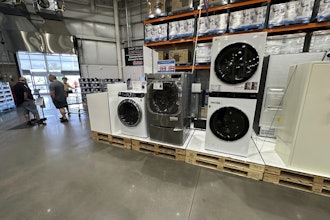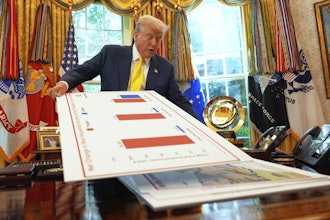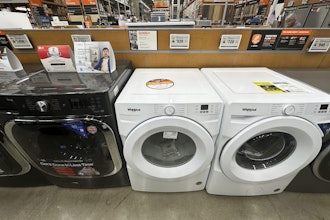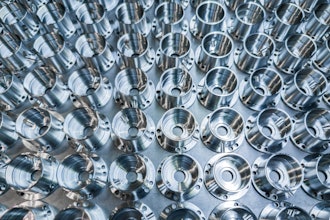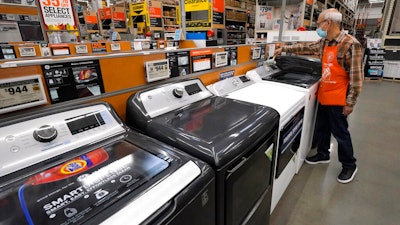
WASHINGTON (AP) — Orders for big-ticket manufactured goods rebounded 0.5% in March as U.S. factories recovered from February weather disruptions. However, the recovery was not as strong as most had expected due to ongoing supply chain disruptions that continue to ensnare U.S. manufacturers.
It was the tenth time in the past 11 months that factory orders have increased with February being the exception, when orders declined 0.9% as severe winter storms raked much of the country.
Orders in a closely watched category that tracks business investment plans also rebounded, increasing 0.9% after having fallen 0.8% in February, the Commerce Department reported Monday.
Excluding the volatile transportation sector, orders would have risen 1.6% in March after having dropped 0.3% in February.
Orders in transportation fell 1.7% as a 5.5 advance in demand at auto plants was offset by a 46.9% plunge in orders for commercial aircraft, a sector that has been hit hard by plunge in air travel since the pandemic started a year ago. There have also been a string of cancellations for Boeing's 737 Max, both due to lower traffic and technical issues with the aircraft.
However, the global supply chain has been snarled by surging demand and ongoing COVID-19 infections.
“Supply chain disruptions continue to be a headwind, preventing a complete recovery to pre-pandemic levels,” said Rubeela Farooqi, chief U.S. economist at High Frequency Economics.
Analysts at Contingent Macro said Monday’s durable goods report “reveals significant volatility” in certain industries due to the supply chain troubles, which have been particularly acute in the delivery of computer chips.
Monday’s report showed that demand for machinery and primary metals such as steel increased last month while orders for computers and related products dropped 1.4%.
Even with the weaker-than-expected orders in March, economists are forecasting a strong economic growth in the January-March quarter. The U.S. releases its first look at gross domestic product on Thursday. Forecasts put that rebound at 5% or better, with even stronger growth in the current quarter, which ends in June.
“As the economy reopens more broadly, industrial activity will continue to be propelled by strong tailwinds including large fiscal stimulus, buoyant demand and strong corporate profits,” said Lydia Boussour, lead U.S. economist at Oxford Economics. “These should more than outweigh ongoing headwinds from stretched supply chains and the global semiconductor shortage.”









